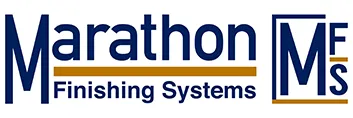If you run a spray booth, you already know there’s a lot that goes into doing it right. And when it comes to fire safety, shortcuts aren’t an option. That’s where NFPA 33 comes in.
This fire safety standard, written by the National Fire Protection Association, spells out how to safely handle spray applications that involve flammable or combustible materials. But what does that really mean for you—day to day, in your shop, with your crew?
Let’s break it down. No fluff. No jargon. Just what you need to know to keep your people safe, stay in compliance, and avoid headaches down the road.
Why NFPA 33 Actually Matters
Spray booths aren’t just about paint. You’re dealing with fumes, overspray, and chemicals that can ignite if things go sideways. NFPA 33 isn’t just a code book it’s a playbook for staying out of trouble.
Here’s what can happen if you ignore it:
- Fire or explosion hazards
- Trouble with OSHA
- Project delays, denied permits, or even a full shutdown
- Insurance issues or worse, liability if something goes wrong
Following NFPA 33 is really about protecting your team, your shop, and your reputation. It’s not there to make your life harder it’s there to help you keep going. Interested in a quote? Request a Quote
Common Mistakes That Can Get You Written Up
Even booths that look good at a glance can have hidden problems. These are some of the issues that tend to pop up during inspections:
- Poor ventilation – Not enough airflow means fumes can build up and become dangerous.
- Wrong electrical setup – Using standard fixtures where explosion-proof ones are required.
- No fire suppression – Especially in older booths, this can be a major red flag.
- Neglected maintenance – Overspray buildup, dirty filters, or worn parts all raise fire risk.
If you’ve inherited a booth or haven’t done a full check in a while, it’s worth taking a hard look. These are fixable problems—but only if you know they’re there.
What Real NFPA 33 Compliance Looks Like
Getting your booth up to code isn’t about one checklist item it’s about building a system that works together to minimize risk. Here’s what that looks like in practice:
Proper Ventilation
Your fans need to move enough air to pull fumes out not just during spraying, but even after you’re done. That lingering vapor can still be a problem.
Keeping a slight negative pressure inside the booth helps prevent anything from leaking into the rest of the shop.
Explosion-Proof Electrical
Where flammable vapors are present, you can’t use standard outlets or lights.
You’ll need Class I, Division 1 rated components in those zones, and every piece of metal equipment should be properly grounded to avoid static sparks.
Fire Suppression System
Automatic systems like sprinklers or dry chemical setups are a must. They also need to be tested and maintained. Just having a system isn’t enough if it doesn’t work when it counts.
Filter & Duct Maintenance
Overspray doesn’t just ruin finishes it clogs filters and becomes a fire hazard.
Filters need to be replaced regularly, and ductwork should be inspected and cleaned to keep airflow strong and safe.
Employee Training & Documentation
Everyone who works in or around the booth should know what to do not just on a good day, but in an emergency.
Keep your safety paperwork, maintenance logs, and inspection records in order. It helps with audits and protects you if there’s ever an incident.
What Inspectors Are Actually Looking For
When a fire marshal or code inspector shows up, they’re not just there to check boxes. They’re making sure your booth isn’t a ticking time bomb.
Here’s what they usually focus on:
- Certified equipment (ETL listings, etc.)
- Proper electrical setup and grounding
- Filter condition and exhaust airflow
- Working fire suppression system
- Overspray control and general cleanliness
They’ve seen what can go wrong. Your job is to make sure your booth isn’t one of those stories.
Don’t Wait for a Failed Inspection
If your setup’s not up to code, it’s not just about fines. You’re putting your crew and your entire operation at risk.
Start with a walkthrough. Bring in a pro if you’re not sure what to look for. Fix what needs fixing. A lot of upgrades better fans, compliant lights, even a fire suppression retrofit can be done without tearing everything down.
There’s always a way forward. It’s just easier (and cheaper) to do it before there’s a problem.
Related read: How regular spray booth maintenance prevents code violations
Want Help Getting Compliant?
At Marathon Finishing Systems, we build spray booths that meet or exceed NFPA 33 and OSHA standards—and we help businesses upgrade existing setups too. If you’re not sure where your booth stands, let’s take a look together.
Contact us to schedule a fire safety and compliance check.
We’ll help you spot what’s working, what’s risky, and what it’ll take to fix it—without the runaround.
